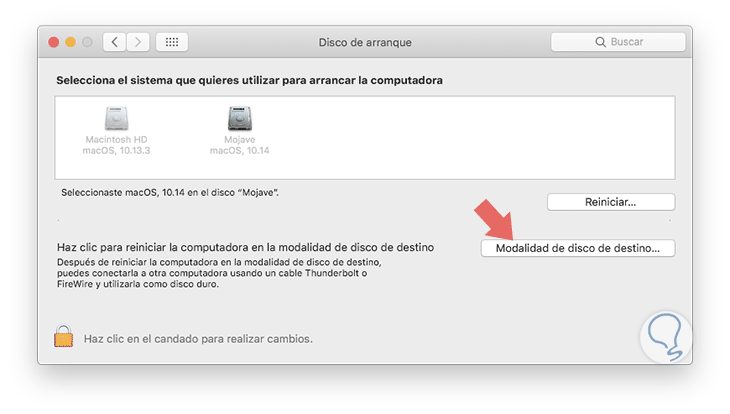
- #Start in target disk mode how to#
- #Start in target disk mode for mac#
- #Start in target disk mode password#
#Start in target disk mode password#
You can boot your Mac into recovery mode, and choose Utility > Firmware Password Utility > Disable Firmware Password, then enter your password to turn it off. With the Mac firmware password turned on, you will not be able to enter the target drive mode from a cold boot. Change different ports or cables to check if there is a connection problem. With the wrong ports or bad cables, the two Macs can not be connected successfully. There are some remedies to fix the Target Disk Mode not working issue. Sometimes, you can't boot your Mac into Target Disk Mode, or the target Mac doesn’t appear as an external hard drive on the host Mac. In the Network window of the second Mac, double-click your M1 Mac that are sharing disk or volume, click Connect As, select Guest in the Connect As window, then click Connect. On the second Mac, click Finder > Locations > Network. From the top menu, select Utilities > Share Disk, and click the disk or volume that you want to share, then click on Start Sharing option. Click Options, then click Continue with the requested password for your administrator account. Shut down your M1 Mac, then press and hold the power button until you see the "Loading startup options" on your screen.

Connect the M1 Mac with the second Mac with a USB, USB-C, or Thunderbolt cable. Then, another connected Mac can access the disk and copy files. If you want to share files between two M1 Macs or from an M1 Mac to an Intel Mac, you can enter Share Disk mode on the Apple silicon Mac to make the startup disk an external hard drive.

Then you can go ahead to copy or transfer files from the target Mac to the host Mac easily.īoot M1 Mac into Share Disk to transfer files Wait until the host Mac detects your target Mac and recognizes its startup disk as an external hard drive. Then you'll see a Thunderbolt or FireWire icon on screen, which means that the Mac is in Target disk mode. For Macs with T2 or FileVault enabled, enter the password when asked. If your Mac won't turn on right now, you can force your Mac to shut down by holding the power button, and then reboot Mac with the T key pressed. If your Mac is turning on, click the Apple logo and go to System Preferences> Startup Disk and click on Target Disk Mode to restart your Mac into Target Disk Mode. Connect two Macs both through the Firewire or Thunderbolt cable mentioned above. If the two Macs are equipped with Intel chips, then you can boot them into Target Disk Mode to move files from one Mac to another. Boot Intel Mac into Target Disk Mode to transfer files Note: If either of the two computers has macOS 11 Big Sur installed, you must connect the two computers using a Thunderbolt cable. AC power source is necessary for MacBooks, in case the Mac runs out of power in Target disk mode. A USB, USB-C, or Thunderbolt cable for M1 Macs.

#Start in target disk mode how to#
How to run iBoysoft Data Recovery in macOS Recovery Mode?
#Start in target disk mode for mac#
If there is no other Mac available, you can boot your Mac into recovery mode and run iBoysoft Data Recovery for Mac to rescue files. Although they both function to transfer files between two Macs, the specific operations are different.īy connecting two compatible Macs, Target Disk Mode/Share Disk can help to access the startup disk when your Mac won’t boot. With the advent of Apple Silicon Mac, the previous Target Disk Mode is replaced by Share Disk (also called Mac Sharing Mode), a new startup option on M1 Mac. By connecting two Macs with Target Disk Mode, you can browse and open your files stored on the target startup disk. Target Disk Mode is a boot mode on Intel Macs that makes the target Mac's startup disk work like an external hard drive on another Mac computer. Keep reading this guide to learn how to boot your Intel Mac to Target Disk Mode or M1 Mac to Share Disk and transfer files from one Mac to another.



 0 kommentar(er)
0 kommentar(er)
